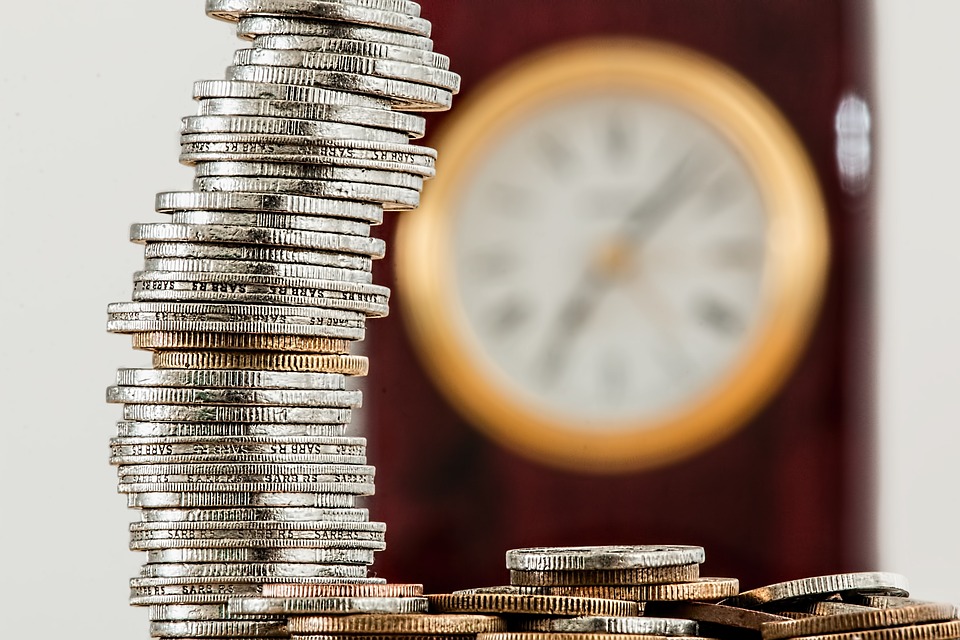Using English at the Bank
Banking vocabulary and phrases related to finance are useful for English learners who are visiting or working in an English-speaking country.
When arriving in a new country to live and work, one of the first things we need to do is open a bank account. In order to do this, we need to know some money and banking vocabulary.
When banking and dealing with financial issues, we tend to use certain key phrases and words. Using English at the bank can be a daunting prospect for some EFL students due to the specific vocabulary needed.
Read on for key English vocabulary and phrases for visiting a bank and managing your money. This includes the words you’ll need for everyday banking tasks, such as:
- opening an account
- withdrawing or depositing money
- using an ATM (cash machine)
- transferring money or paying bills
We explore special terms and words you will hear at the bank, finance-related vocabulary you might want to use and useful advice for fill in banking forms.
General Banking Vocabulary
money, loose change, coins, pennies, notes, bank notes
cheque, bank book, paying in book
to deposit / making a deposit – paying into your bank account
to withdraw / making a withdrawal – taking money out of your bank account
to debit – to take money from your account (e.g. ‘your account has been debited’)
to credit – to add money to your account (e.g. ‘your account has been credited’)
balance – the amount of money in your account
to be in credit – to have a positive bank balance
to be overdrawn – to have a negative bank balance
credit (noun) – credit allows a person to buy goods/services before payment, based on trust that payment will be made in the future
debit card, credit card, store card – types of plastic cards used for making financial transactions
- Debit cards use money you already have in your account
- Credit cards use money on ‘credit’ – that you will have to pay back in the future

direct debit, standing order – money that is pre-arranged to be withdrawn from your account to pay a regular person/company
one-off payment – a single payment that won’t necessarily be repeated
ATM – automatic teller machine (slang: ‘hole in the wall’) – this is the machine you get money from. These can be found outside banks, on the street or often located inside a shopping centre
PIN (personal identification number) – you use a PIN when withdrawing money from an ATM and when paying with your credit/debit card
Contactless payment – a payment where you hold your debit and near the machine and it automatically pays without you having to enter a PIN
Warranty, insurance, purchase protection – when you have bought an item, this is insurance against it breaking
Debt, arrears – money you owe
liquidation – turning investments into cash (i.e. selling your house to get the money) – if a company goes into liquidation, it closes down
administration – if a company goes into administration it means it has been taken over by a court (the ‘administrator’) – going into administration means the company is in trouble and might have to close down
bureau de change – somewhere that exchanges foreign money
exchange rate – the rate at which you can exchange money (how much one currency is worth against the other)
currency – a system of money (e.g. the Euro is a currency)
commission – a charge paid, usually a percentage of the whole amount (a bureau de change will charge you commission to exchange your money – if you withdraw money at a foreign ATM, your credit card company will normally charge 3% of the total amount as commission)
loan – money that is borrowed (usually paid back with interest)
interest – extra money added onto the total amount. You usually have to pay interest on a loan, while you will also often receive interest on your savings
interest-free credit – a loan (credit) that does not have interest
to pay by installments – to pay back your loan in small amounts over a period of time
to pay in full – to pay back the whole loan (not in installments)
Credit card networks: Mastercard, Visa, American Express – these companies act as intermediaries, creating networks between financial companies
General types of debit card: Switch, Solo, Visa Electron, Maestro
Finance vocabulary
Banking
Bank account, checking account, deposit account, savings account
Insurance, travel insurance, life insurance
Mortgage, loan, debt
Tax, VAT (value added tax), gross income, net income
Bank manager, bank clerk, teller
Saving
Savings account, ISA, investment, bond
Pension, pension plan,
Interest rate, gross interest, net interest, AER, tax free
Fixed rate, variable rate
(Gross rate interest – before deduction of income tax)
(AER – annual equivalent rate – interest if paid and compounded on an annual basis)
Collocational phrases for banking
to pay in a cheque
to cash a cheque
to transfer money
(for a company) to go into liquidation
(for a company) to go into administration
to be in debt
to owe money (to someone)
to take out a loan
to insure something against fire/theft/accidental damage

to pay into a savings account/pension
to borrow money from someone
to pay by installments
to lend money to someone
to invest in something/someone
to get a return on an investment
to change some money
to borrow money – to take money from someone that you will pay back later
to lend money – to give someone money that they will pay back later
Phrase for English at the bank
| Phrases you may want to use at the bank | |
| I’d like to open a savings account | I’d like to open an ISA, please |
| I’d like to pay in a cheque | What is the interest rate on this account? |
| I’d like to cash this cheque | Could I change this money, please |
| My credit card has been stolen | Could I change £50 into Euros, please |
| I’ve lost my credit card | What is the exchange rate? |
| Phrases you may hear at the bank | |
| Would you like to apply for a credit card? | Could you fill out this form, please? |
| Would you like to open an ISA? | You will need to speak to the mortgage manager / financial advisor |
| Would you like your interest to be compounded? | Do you need insurance? |
| We can change that into Euros for you | Do you want to pay your balance off in full? |

More banking vocabulary and meanings
bank – a place where you keep or manage money
account – a place where your money is stored
balance – how much money you have in your account
savings account – an account for saving money
current account – an account for daily spending
overdraft – spending more money than you have
loan – money borrowed from the bank
interest rate – extra money paid on loans or savings
credit card – a card for borrowing money to pay later
debit card – a card that uses money from your account
deposit – to put money into your account
withdraw -to take money out of your account
ATM / cash machine – a machine to withdraw cash
teller – the person working at the counter
PIN (personal identification number) – your secret number for banking
Useful Phrases at the Bank
Here are common phrases you might need when speaking at the bank:
- I’d like to open a bank account.
- Can I withdraw some cash, please?
- I’d like to deposit this cheque.
- What’s my account balance?
- I need to transfer money to another account.
- Can I set up a standing order / direct debit?
- I’ve lost my card. Can you cancel it?
- Can I change some money, please?
- How long will the transfer take?
Common ATM / Cash Machine Screen Phrases
When you use an ATM, you might see these phrases:
- Insert your card
- Enter your PIN
- Select transaction
- Withdraw cash
- Check balance
- Print receipt?
- Take your cash
- Take your card
- Insufficient funds
It’s useful to practise reading these quickly so you feel confident using an ATM.
Words for Bank Forms and Documents
When filling in forms at the bank, you might see:
full name – your complete name
address – where you live
date of birth – your birth date
nationality – your country of citizenship
proof of ID – official identification (passport, ID card)
signature – your handwritten name
occupation – your job or work
marital status – whether you are married, single, etc.
account number – your personal bank account number
sort code – the bank’s identifying code
Note: Some forms may ask for “beneficiary” (the person receiving the money in a transfer).
Example Dialogues
At the counter:
Customer: I’d like to withdraw £200, please.
Teller: Sure. Could I see some ID?
Customer: Here’s my passport.
Using an ATM:
Screen: Enter your PIN.
(user enters PIN)
Screen: Select transaction.
(user selects “withdraw cash”)
Screen: Take your cash.
- Final Tips
Speak clearly and politely: “Could you help me, please?” - Bring ID (passport or driving licence) when doing bank transactions.
- Read all forms carefully before signing!
Share your thoughts on banking and finance vocabulary
Can you think of any more useful banking phrases or money vocabulary for EFL learners?
Which words or phrases related to banking do you want to learn more about?
Let us know your thoughts in the comments.

please i need twente vocabularies used in banking and finance and its meaning and contents
Bank of England
Pounds